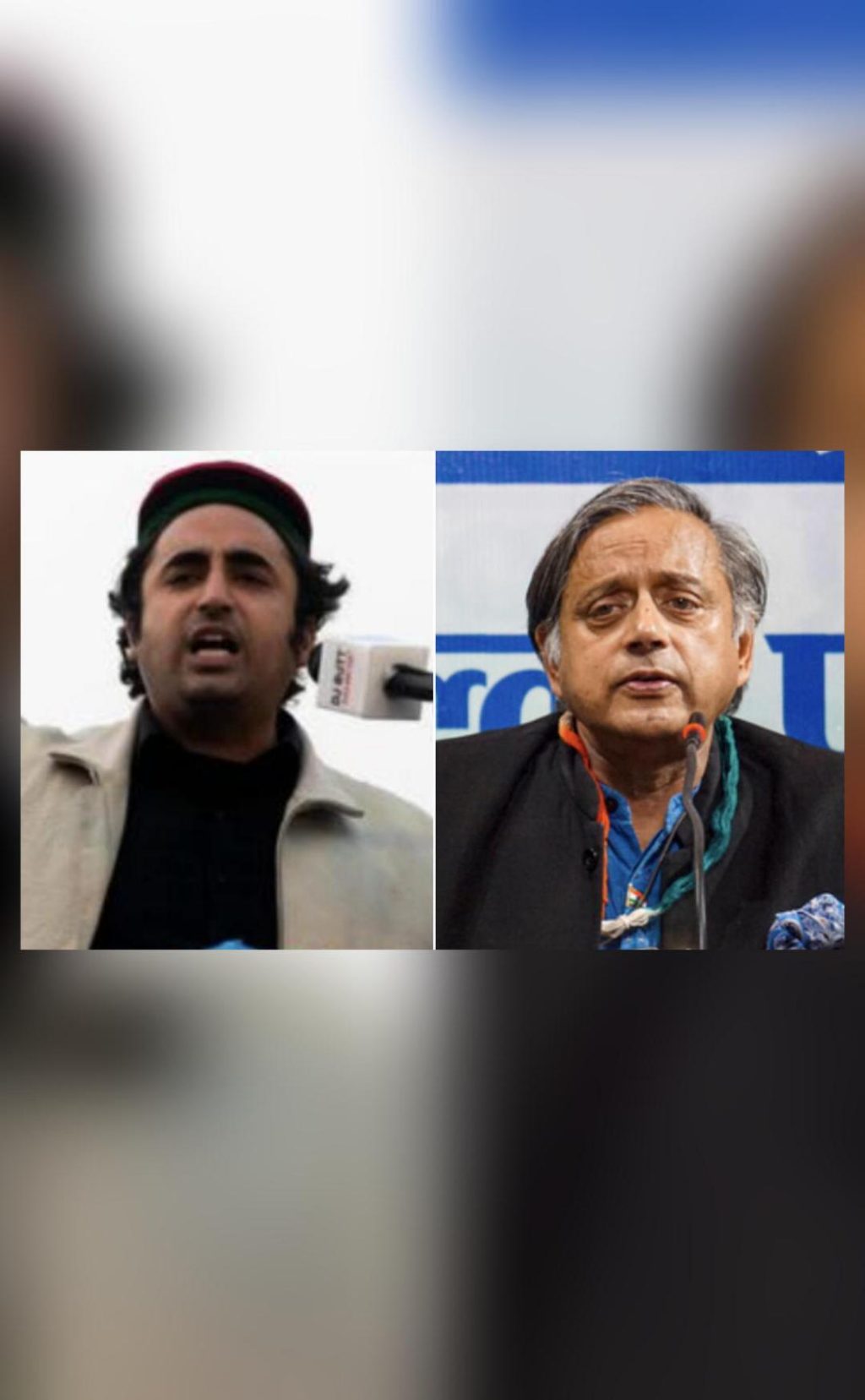
Just Inflammatory Rhetoric: Tharoor on Bilawal Bhutto’s Remark
In the recent past, the political landscape of South Asia has been marred by a series of provocative remarks and counter-remarks between politicians from India and Pakistan. The latest addition to this list is a statement made by Pakistani politician Bilawal Bhutto, who reacted to India’s decision to suspend the Indus Waters Treaty over the Pahalgam attack. Congress MP Shashi Tharoor was quick to respond to Bhutto’s remark, calling it “just inflammatory rhetoric” that only serves to escalate tensions between the two nations.
Bilawal Bhutto’s statement, which sparked a heated debate, was made during a press conference in which he criticized India’s decision to suspend the Indus Waters Treaty. The treaty, signed in 1960, regulates the sharing of water resources between India and Pakistan. Bhutto’s statement came in response to India’s decision to suspend the treaty after a Pakistan-based terrorist group, Jaish-e-Mohammed, carried out an attack in Pahalgam, Jammu and Kashmir, that left several people dead.
In his statement, Bhutto said that India’s decision to suspend the treaty was a “grave mistake” and that it would have “far-reaching consequences” for the region. He also accused India of trying to “sabotage” the treaty and undermine Pakistan’s economy. Tharoor, who was quick to respond to Bhutto’s statement, called it “just inflammatory rhetoric” that only serves to escalate tensions between the two nations.
Tharoor’s response was made on Twitter, where he wrote, “Pakistanis have to understand they simply cannot kill Indians with impunity. If blood is going to flow, it will flow possibly more on their side.” He also added that India’s decision to suspend the treaty was a necessary step to ensure the country’s security and that it would not be deterred by Pakistan’s threats.
Tharoor’s response is significant because it highlights the growing tensions between India and Pakistan. The two nations have a long history of conflict, and the recent attacks in Pahalgam have only served to further escalate tensions. India has been critical of Pakistan’s failure to take action against terrorist groups operating from its territory, and Pakistan has accused India of trying to destabilize its economy.
The Indus Waters Treaty is a critical component of the relationship between India and Pakistan. The treaty regulates the sharing of water resources between the two nations, and any changes to the treaty could have significant consequences for the region. India’s decision to suspend the treaty is a major blow to Pakistan, which relies heavily on the treaty to meet its water needs.
In response to India’s decision, Pakistan has accused India of trying to “sabotage” the treaty and undermine its economy. Pakistan’s Foreign Ministry has also called on India to reconsider its decision and to continue to work towards a peaceful resolution of the dispute.
India, on the other hand, has maintained that its decision to suspend the treaty is a necessary step to ensure the country’s security. The Indian government has also accused Pakistan of supporting terrorist groups operating in the region, and has called on Pakistan to take action against these groups.
The tensions between India and Pakistan are not limited to the Indus Waters Treaty. The two nations have a long history of conflict, and the recent attacks in Pahalgam have only served to further escalate tensions. India has been critical of Pakistan’s failure to take action against terrorist groups operating from its territory, and Pakistan has accused India of trying to destabilize its economy.
In conclusion, Bilawal Bhutto’s remark on India’s decision to suspend the Indus Waters Treaty over the Pahalgam attack is just inflammatory rhetoric that only serves to escalate tensions between the two nations. Tharoor’s response to Bhutto’s statement highlights the growing tensions between India and Pakistan, and the need for the two nations to work towards a peaceful resolution of the dispute.





